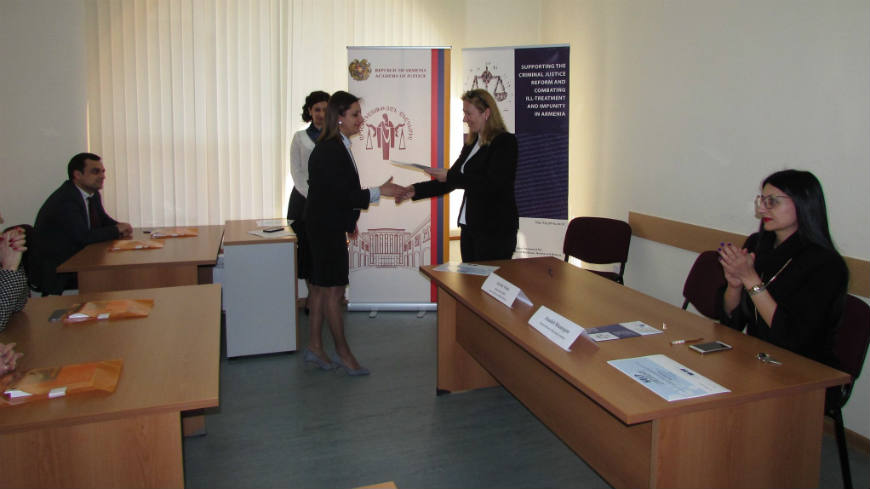On 27 April 2017, Deputy Head of the Council of Europe Office in Yerevan, Ms Loreta VIOIU, awarded certificates to 15 Armenian legal professionals who successfully completed the Human Rights Education for Legal Professionals (HELP) distance-learning course on “Admissibility of Evidence in Criminal Proceedings”. The choice of the course made it possible to link it to the manual on the same subject published by the Council of Europe in 2016 and thus maximise the effect of this activity, since there is a close link between implementing the human rights standards related to evidence and reducing occurrence of ill-treatment during criminal investigations. Equal numbers of prosecutors, investigators and advocates participated in the pilot HELP course. The average score obtained by the participants is 99.69 percent.
The ceremony was attended by representatives of the Justice Academy, Investigative Committee, Prosecution office and Chamber of Advocates. In their welcoming addresses all of them highly valued the cooperation with the Council of Europe, highlighted the importance of HELP courses for Armenian legal professionals and stressed that the promotion of human rights is a commitment undertaken by all member states when joining the Council of Europe and the European Convention on Human Rights (ECHR).
The activity was organised within the framework of the Project “Supporting the criminal justice reform and combating ill-treatment and impunity in Armenia”, funded within the European Union and the Council of Europe programme Partnership for Good Governance.
The HELP programme supports the Council of Europe member states in implementing the ECHR at the national level. HELP is a network of national training institutions for legal professionals of the 47 member states. It is also a methodology and online free platform, with both self-learning resources and distance-learning courses.

